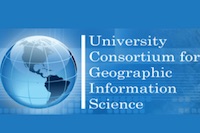From the Archive: Challenges and Opportunities in Distance Education for Geographic Information Science
 This paper, the result of panel discussions and working groups convened by the University Consortium for Geographic Information Science, examines several key issues in distance education with respect to the profound impact that they will have on training and education in geographic information science in the U.S., and on the overall effectiveness of colleges and universities with strong programs in the field. While there is clearly a national demand for GIScience education and growing evidence that distance education has the potential to deliver it rigorously, many challenges remain. These are discussed in terms of gaps in educational research that can be bridged by GIScience academics, such as the development of distance education pedagogies specifically for GIScience, the interaction of multiple (as opposed to single) technologies for effective learning at a distance (e.g., GIS with remote sensing, digital image processing, location based services, and the like), the general effectiveness of digital geospatial libraries for supporting GIScience distance education, how best to support faculty innovations in distance education using the latest technologies (such as web GIS, virtual learning environments, etc.), and research into the best cost and funding models for distance education in GIScience. In the end, the primary issue may be not what GIScience can contribute to the improvement of distance education, but what distance education may uniquely contribute to GIScience
This paper, the result of panel discussions and working groups convened by the University Consortium for Geographic Information Science, examines several key issues in distance education with respect to the profound impact that they will have on training and education in geographic information science in the U.S., and on the overall effectiveness of colleges and universities with strong programs in the field. While there is clearly a national demand for GIScience education and growing evidence that distance education has the potential to deliver it rigorously, many challenges remain. These are discussed in terms of gaps in educational research that can be bridged by GIScience academics, such as the development of distance education pedagogies specifically for GIScience, the interaction of multiple (as opposed to single) technologies for effective learning at a distance (e.g., GIS with remote sensing, digital image processing, location based services, and the like), the general effectiveness of digital geospatial libraries for supporting GIScience distance education, how best to support faculty innovations in distance education using the latest technologies (such as web GIS, virtual learning environments, etc.), and research into the best cost and funding models for distance education in GIScience. In the end, the primary issue may be not what GIScience can contribute to the improvement of distance education, but what distance education may uniquely contribute to GIScience







